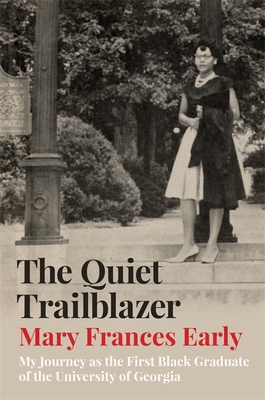
The Quiet Trailblazer
Mary Frances Early was a celebrated musical educator and committed “foot soldier” in the struggle for civil rights, becoming the first Black graduate of the University of Georgia.
Mary Frances Early was a celebrated musical educator and committed “foot soldier” in the struggle for civil rights. In this autobiography, she describes how growing up in segregated Atlanta helped spur her love of music and inspired her to become a teacher, as well as leading her to fight discrimination by becoming the first African American to graduate from the University of Georgia.
Born in 1936, Early was keenly aware of the evils of segregation, even as her parents attempted to spare her the worst of its indignities. In elementary school, she fell in love with music as part of her school’s rhythm band and was inspired to teach by her educator mother. A dedicated student, Early earned a scholarship to attend Clark College and became an elementary school music teacher. Georgia’s segregated college system did not offer graduate degrees and so, in the summer of 1958, she travelled to Interlochen, Michigan, to take graduate courses in education sponsored by the University of Michigan. She greatly enjoyed her time there and spent the next two summers in Ann Arbor.
She planned to return to finish her master’s degree, but in January 1961 she watched, horrified, as white students rioted outside the dormitory where one of the first two Black students admitted to the University of Georgia lived. As she stared at the television, she made a life-altering decision: “I would assist these two brave students in their efforts to integrate out state university by transferring from the University of Michigan to the University of Georgia.” Overcoming racist hostility from both the administration and other students, she succeeded in enrolling, becoming the first Black graduate in August 1962. Despite going on to a celebrated career as an educator, Early’s achievement was forgotten for 35 years until it was discovered by UGA in 1997. She received an honorary doctorate in 2019.